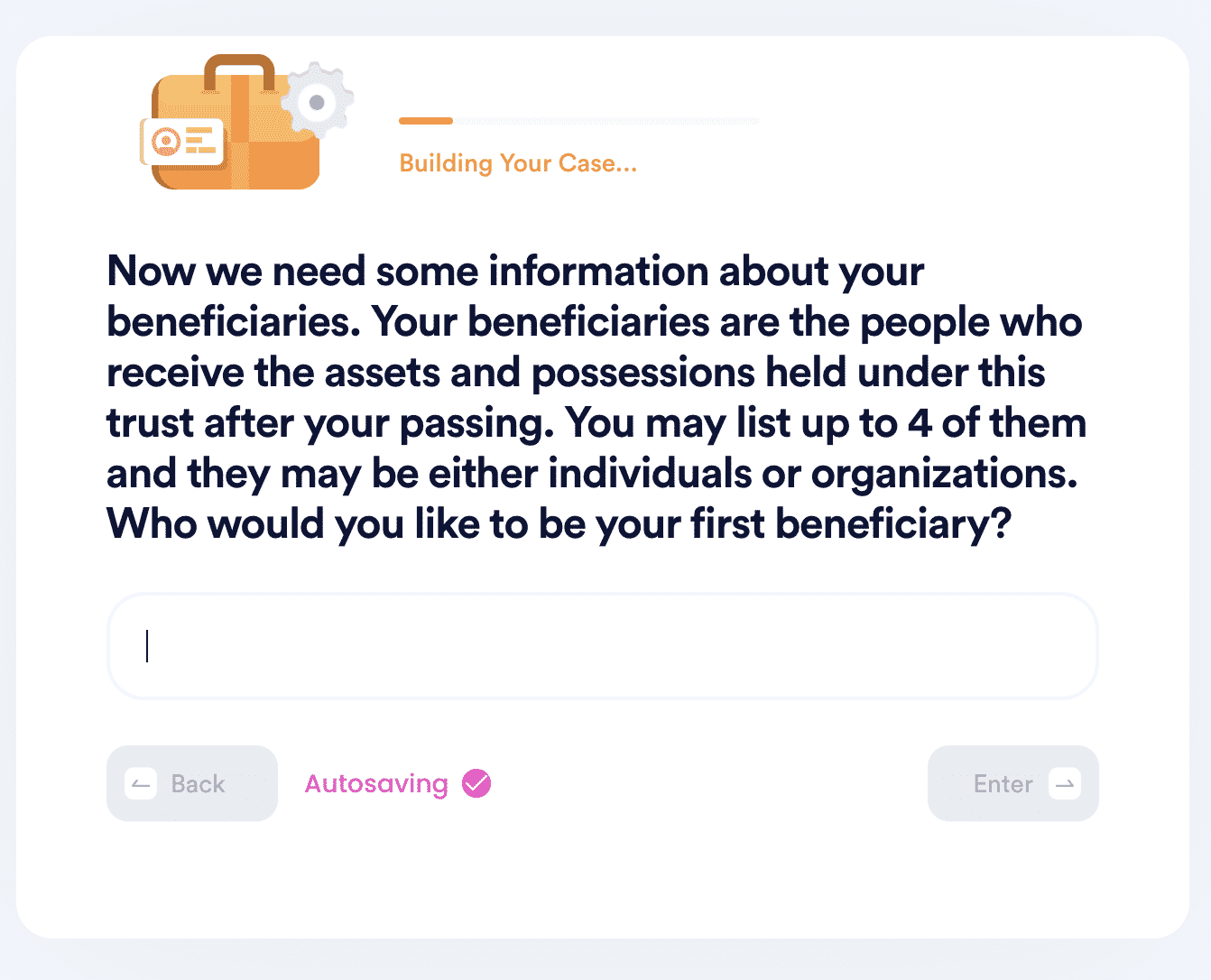How Long Can a Revocable Trust Continue Sfter Death of Grantor
Does a Revocable Trust Become Irrevocable Upon Death?
You may be curious about what happens to your revocable trust once you pass away. Depending on how well your revocable trust is set up, there are a few changes that might happen in the events following your death.
Find out if you should be worried about these changes, and in case you haven't set up your revocable trust , see how you can do so in a few minutes, with DoNotPay .
Revocable Trusts and Irrevocable Trusts
Revocable trusts and irrevocable trusts are two types of living trusts people use to have a trustee manage their estates during their lifetime and after their demise . Both have an advantage over traditional estate planning methods like wills , as they take effect right when the grantor (the person who sets up the trust) is still alive. Another advantage of living trusts over wills is the ability to skip the probate process.
Here are some of the major differences between a revocable trust and an irrevocable trust:
-
Flexibility
Revocable trusts are flexible and allow for changes while the grantor is still alive. You are unable to make modifications to irrevocable trusts , which remain fixed once legally set-up.
-
Independence
Unlike irrevocable trusts, a revocable trust is tied to the grantor for his or her entire lifetime. They have the power to change, alter, or even discontinue the trust agreement and bear the attendant tax implications involved. Once an irrevocable trust is legalized, all the assets and properties under the trust belong to the trust and not the grantor.
-
Tax implications
Revocable trusts assign all tax responsibility to you as the grantor, since all the assets listed in the trust are under your control. The reverse is the case with irrevocable trusts since it is regarded as a separate entity in the eyes of the law.
What Happens to a Revocable Trust After the Grantor Passes Away?
When a grantor dies, here are the changes that take place to his or her revocable trust:
| Revocable trust becomes irrevocable | This simply means no further changes can be made to the trust since the principal has died. |
| A new tax ID is needed | The trust assumes a new independent legal status and will need a new state or federal tax ID number . |
| The named trustee takes over | The next named trustee assumes the responsibility of the executor and carries out the will according to the grantor's wishes. |
| Tax responsibilities are passed on to trust | With a new legal status comes new tax responsibilities . The tax burden is only transferred to a benefactor if they make additional profit from their inheritance. |
| Appraisal | It is the duty of the trustee to appraise all assets in the trust at present market fair value and report to the IRS before handing over ownership to the beneficiaries. |
| Beneficiaries are notified | After the death of the grantor, the trustee also has the responsibility to contact all beneficiaries and notify them of the death of the grantor and their inheritances. |
Benefits of Setting Up a Revocable Trust
The biggest benefit that comes with a revocable trust is the avoidance of probate. Probate is a tedious and sometimes expensive legal process the courts use to transfer assets to the beneficiaries. Other top gains that make revocable trusts a preferable estate planning tool are flexibility and control the owner has over the trust throughout their lifetime as well as the non-disclosure privacy the beneficiaries may enjoy during the period of asset transfer.
How to Start Your Revocable Trust
The steps to setting up a revocable trust involve:
- Considering what kind of revocable trust you prefer — a joint or an independent one
- Selecting your beneficiaries
- Choosing primary and secondary trustees and child custodians in the case your beneficiaries are minors
- Selecting what assets from your total estate will be under your revocable trust
- Obtaining and filling up a revocable trust form - by yourself, with an attorney, or with DoNotPay
- Notarizing your revocable trust form at a state or federal court
How to Get a Revocable Trust from DoNotPay
For most people looking to get a revocable trust, the costs to set one up can be very expensive. Enter DoNotPay, your robot lawyer! Creating a revocable trust becomes easy and unbelievably affordable when you use DoNotPay, simply:
- Log-in to DoNotPay
- Click the Revocable Living Trust product

- Answer the following questions:
- What state do you live in?
- Who will be your trustees and beneficiaries?
- What assets and properties do you want to include in your trust?
- What state will you get the document notarized?

After you finish the questions the chatbot asks you, your revocable trust will be drawn up, ready to be notarized! How convenient! 
Living Trusts By State
Need a more detailed explanation about living trusts in your state? Check these articles below for help:
| California | Ohio | Hawaii |
| Florida | Wisconsin | Missouri |
| Texas | Virginia | Pennsylvania |
| Arizona | North Carolina | Utah |
| Michigan | Georgia | Indiana |
| Colorado | Massachusetts | Idaho |
| Illinois | Maryland | South Carolina |
| Washington State | New Jersey | Louisiana |
| Oregon | Minnesota | Alaska |
| New York | Oklahoma |
DoNotPay Can Do More for You
- Report discrimination to the EEOC
- Create financial aid appeal letters
- File gift card cash back requests
- Reduce property taxes
- Sue anyone in small claims court
Want your issue solved now?
Source: https://donotpay.com/learn/does-a-revocable-trust-become-irrevocable-upon-death/
0 Response to "How Long Can a Revocable Trust Continue Sfter Death of Grantor"
Post a Comment